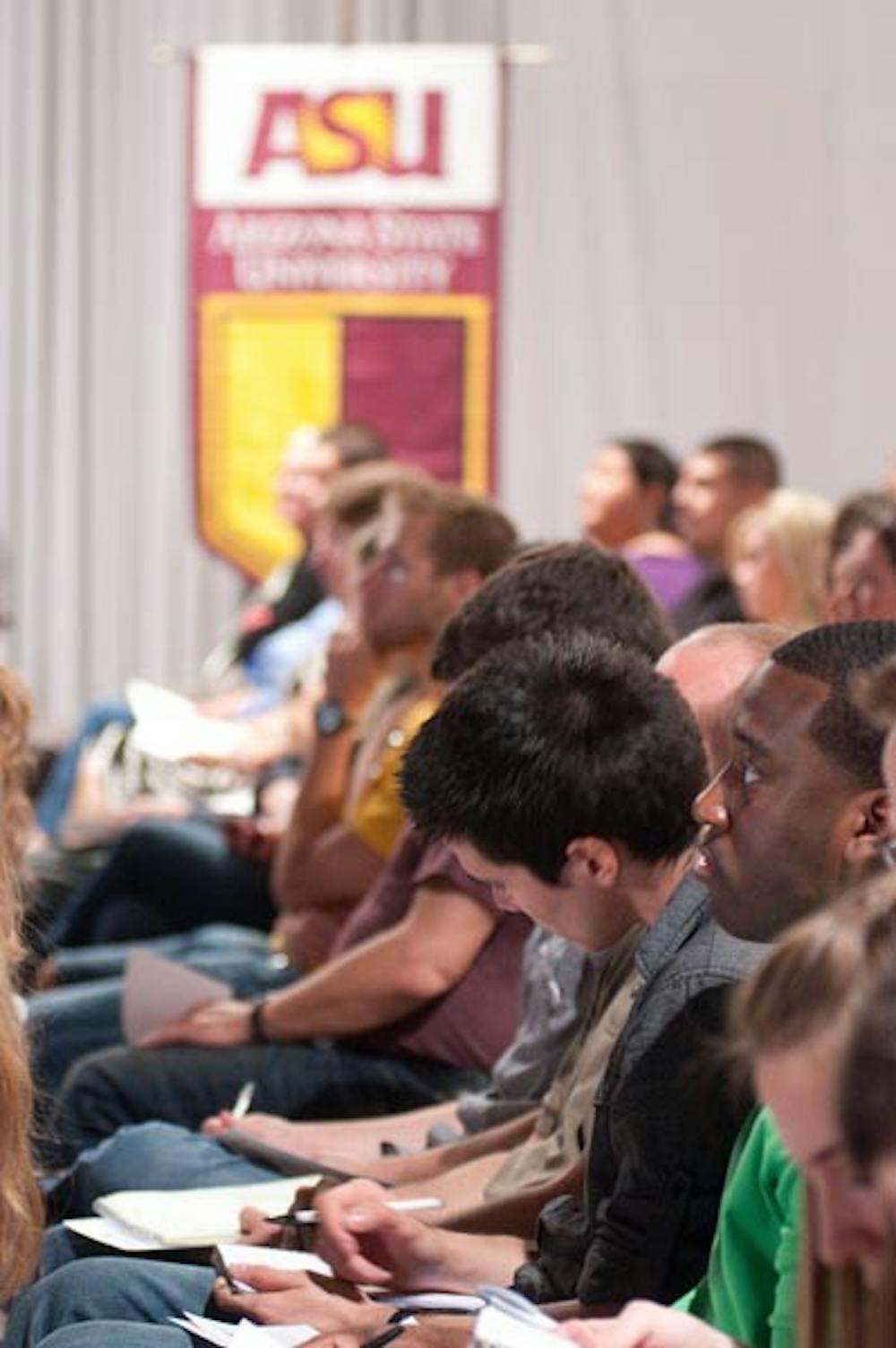About 200 students gathered at the Downtown campus Monday to hear U.S. Secretary of Education Arne Duncan address college students across the nation in a live MSNBC broadcast from New York.
Duncan focused his remarks on encouraging students to enter the teaching profession to create the “next generation of teachers.”
“We have a baby booming generation moving towards retirement. Over the next five, six, seven years, we anticipate as many as a million teachers retiring,” Duncan said. “Our ability to attract — and more importantly retain — great talent over the next couple years is going to shape public education for the next 25 to 30 years. This is a generational shift.”
The event, called “Teach for Tomorrow: A Reverse Commencement Address,” was hosted on campus by both ASU’s Mary Lou Fulton Teachers College and the University’s media relations department, said Andrea Stouder Pursley, the executive director of Sanford Education Project.
The Sanford Education Project is an ASU initiative, in conjunction with Teach for America, to recruit more students to become educators.
“The purpose of the event was to recruit undecided freshmen to pursue a career in teaching,” Stouder Pursley said. “I heard a couple students after the event saying they hadn’t considered a career in education, but were considering it now.”
ASU was one of four universities across the country allowed to ask the secretary questions. The questions ranged from an ASU student’s concern about the future of teaching jobs to a Howard University student asking what was being done to promote the safety of students whose schools are in particularly violent neighborhoods.
Miami Dade College and Michigan State University were also selected to participate and ask questions.
Mechanical engineering junior Chris Linich attended the event, and said the questions could have been more focused on policy issues.
“They were good questions, but they should have been geared more toward what he’s doing about certain issues, rather than asking what he thought about those issues,” Linich said.
The conversation centered on what teachers could do to help education in the U.S., but Linich said Duncan didn’t talk enough about what students should do to improve performance.
“I wish they had touched more on balancing out teacher involvement with student involvement,” he said. “It’s not all the teacher’s responsibility.”
Duncan also talked about the reason behind roughly one-third of teachers leaving their jobs in the first three years and how money and a lack of support contributes to that high turnover rate.
“No one goes into education to make a million dollars; teachers are the most altruistic, the most idealistic people,” Duncan said. “But what happens? They don’t get the support they need, they don’t get the mentoring, they don’t get the induction, they weren’t well prepared … they don’t feel supported, and they burn out.”
Duncan said the high school dropout rate is “staggeringly high,” and though the U.S. used to have the highest college graduation rate in the world, it is now ninth.
The national dropout rate was 8.7 percent in 2007, according to the most recent data available from the U.S. Department of Education. The highest dropout rate in the last decade was 11.8 percent in 1998.
“When you look at our dropout rate and you look at the lack of college completion, those two factors together … are economically unsustainable,” he said. “We have to educate our way to a better economy … this is the civil rights issue of our generation.”
A panel discussion before the address included Crystal Cruz, a Sanford Education Project recruiter.
“The biggest thing we hadn’t heard before was when the secretary called improving education in the U.S. the social issue of our time,” Cruz said. “He touched on the really important issues to students.”
Reach the reporter at ymgonzal@asu.edu





